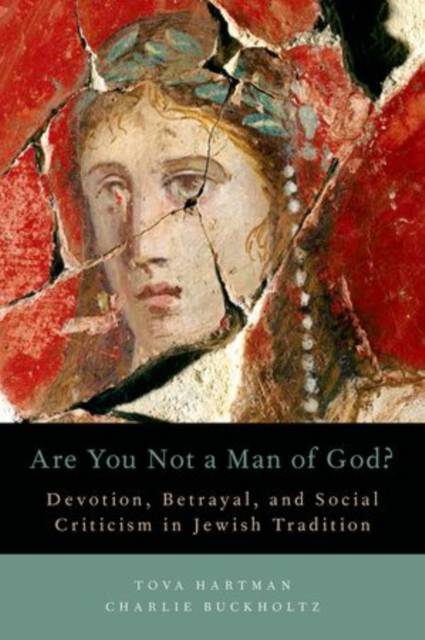
- Retrait gratuit dans votre magasin Club
- 7.000.000 titres dans notre catalogue
- Payer en toute sécurité
- Toujours un magasin près de chez vous
- Retrait gratuit dans votre magasin Club
- 7.000.0000 titres dans notre catalogue
- Payer en toute sécurité
- Toujours un magasin près de chez vous
Are You Not a Man of God?
Devotion, Betrayal, and Social Criticism in Jewish Tradition
Tova Hartman, Charlie Buckholtz
Livre relié | Anglais
140,95 €
+ 281 points
Description
Are You Not a Man of God? challenges the accepted readings of several iconic supporting characters from canonical stories of Jewish tradition. These characters have been appropriated throughout history to represent and reinforce central cultural values: the binding of Isaac and the religious value of sacrificing relationship for a higher purpose; the biblical Hannah, appropriated by the rabbis as an archetype of the spirit and practice of prayer; the Talmudic Beruriah and the significance of women's learning and knowledge; and the struggle for intellectual autonomy of the rabbis of the Talmudic story known by its tag-line, "It is not in heaven!" Tova Hartman and Charlie Buckholtz make use of religious, psychological, philosophical and literary perspectives to bring these characters to life in their multiple incarnations, examining their cultural impact and varied symbolic uses.
These are texts that have been studied widely with characters that are known well. This study shows, however, that the dominant interpretations mask darker, more insightful, and ultimately more critical dimensions of these important figures. Hartman and Buckholtz discover muted voices of personal betrayal and criticism that resonate as damning social critiques of the rabbis themselves. These critiques often highlight the ways in which cultural authorities use, and abuse, their power; revealing the implications of these moral failings on their legitimacy as communal leaders. In these voices of social criticism, the rabbis evince an awareness of their own vulnerability to such abuses and failings as well as their hurtful, marginalizing effects on members of less powerful social groups.
These are texts that have been studied widely with characters that are known well. This study shows, however, that the dominant interpretations mask darker, more insightful, and ultimately more critical dimensions of these important figures. Hartman and Buckholtz discover muted voices of personal betrayal and criticism that resonate as damning social critiques of the rabbis themselves. These critiques often highlight the ways in which cultural authorities use, and abuse, their power; revealing the implications of these moral failings on their legitimacy as communal leaders. In these voices of social criticism, the rabbis evince an awareness of their own vulnerability to such abuses and failings as well as their hurtful, marginalizing effects on members of less powerful social groups.
Spécifications
Parties prenantes
- Auteur(s) :
- Editeur:
Contenu
- Nombre de pages :
- 224
- Langue:
- Anglais
Caractéristiques
- EAN:
- 9780199337439
- Date de parution :
- 21-02-14
- Format:
- Livre relié
- Format numérique:
- Genaaid
- Dimensions :
- 155 mm x 236 mm
- Poids :
- 408 g

Les avis
Nous publions uniquement les avis qui respectent les conditions requises. Consultez nos conditions pour les avis.






